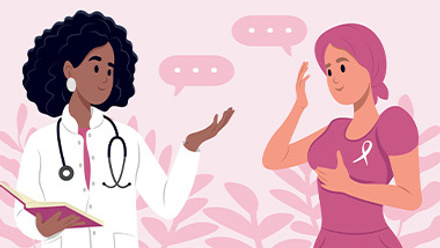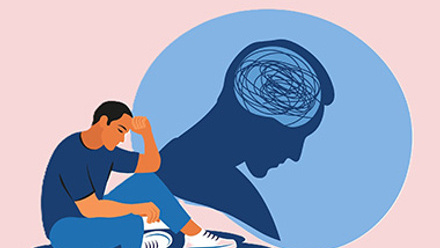Men's mental health: employers' role in offering support
Men are more willing to talk about their physical health than their mental health, according to a spot poll conducted among Generali UK Employee Benefits employees.
Around four times more men would be willing to talk about their physical health with a GP, family member or friend, than they would their mental health.
And about a third of men would prefer to handle a potential mental health issue on their own, stating the main barrier to seeking assistance is the perception that it’s just not a big enough problem.
A report published last year indicated an encouraging increase in the number of men seeking help for their mental health.
But if our spot poll is anything to go by – findings that are, incidentally, aligned with the experience of a nationwide charity – there’s still a lot of work to be done.
“Your poll results very accurately reflect the guys who attend our groups,” said Lucas Whitehead, Head of Marketing and Partnerships at charity Andy’s Man Club on Generali’s latest Wellbeing360 podcast.
Generali wanted to find out about the work of Andy’s Man Club – a free-to-attend, peer-to-peer support group for men aged over 18 – to better understand the current state of men’s mental health in the UK.
The club takes its name from Andrew Roberts, a man who sadly took his own life in early 2016. Andy’s mum and brother-in-law came up with the idea for the charity.
Suffer in silence
As indicated by our spot poll, men seem inclined to suffer in silence, often only reaching out for help when they hit breaking point.
Whitehead agreed, adding: “Men tend to only reach out for support when they’re at crisis point.
“Whilst we can’t support those in crisis (that’s the role of organisations such as the Samaritans), we help a lot of men who are close to crisis point. Men who are in a position of desperation. Ideally, we want them reaching out for help well before this stage.
“If you had a bad knee and struggled to walk, you’d do something about it. If you’re having troubling thoughts, you need to do something about it. Don’t wait for the desperation stage. The good thing is, we are seeing an increase in men coming forward for support.”
Andy’s Man Club has seen a big expansion as a charity, growing from around 150 locations nationwide a couple of years ago, to 211 today. At the time of writing, around 5,200 men a week attend their Monday night groups.
“This expansion suggests an increase in need and that isn’t necessarily a bad thing. It could be taken negatively – that mental health is getting worse – or it could just show how normal it is to struggle, and how that struggle is becoming normalised for men,” said Whitehead.
The generational gap: Don’t leave men behind
At the same time though, experiences of what’s normal and what isn’t are very different, especially when you consider this by age. Opening up about personal struggles isn’t necessarily normal for men in their 40s, 50s and above.
This might help to explain why male suicide is so prevalent in middle age.
The statistics on male suicide in the UK are shocking. Three times as many men as women die by suicide, and it represents the leading cause of death for men aged under 50.
Delve deeper into this data and you find that the highest suicide rate is in men aged 45-49 years.
“This is the age when men are more likely to be facing things like divorce, health issues, a change of career, maybe even early retirement,” said Whitehead.
“All these things lead to instability and uncertainty. And when, as young boys, we’re brought up to not show emotion, this kind of stuff can leave men floundering.
“Typical gender roles imposed on us by society are massively significant. Men are still expected to be a beacon of strength and to categorise vulnerability as weakness,” added Whitehead.
“We also have a culture of drinking in the UK. A lot of male social interactions don’t revolve around talking about feelings.
“This doesn’t mean we all need to go out with the intention of having an outpouring of emotion. It just means we need the structures in place to check in on each other.”
Inclusion doesn’t have to mean all-inclusive
We need to shift to a place in society where men seeking support isn’t seen as a sign of weakness, but one of strength and courage, whatever the individual’s age.
“Views on masculinity are changing and that’s a positive thing,” said Whitehead.
“However, there’s a generation of men being left behind, especially when we start talking about things like toxic masculinity and erosion of traditional roles in society. When I bring that into talks in workplaces, it can get some men’s backs up, especially older men.
“The fact that there are fewer exclusively male spaces now is brilliant, on the one hand, because a lot of men are more confident with other genders.
"On the other hand, it can be really alienating for some. Men are often more confident speaking to other men,” said Whitehead.
"That’s why we’re a male only charity. It might be considered archaic, but we’re conscious of alienation and that’s where men are most likely to take their own life.”
Whitehead said employers have a role in helping with this; from leadership role modelling to ensuring access to relevant support and services. He added that signposting to external sources of support is really important here too.
“Awareness of organisations like ours, that are completely separate entities to work and that provide a male-only space for men to relate to each other, is important.
“From our experience, you can have the most supportive workplace in the world, but past experiences might mean that a man will never open-up at work, or in response to any support provided by work.”
Listen to ‘Episode 14: Better workplace mental health support for men’
Disclaimer: All information contained herein represents the views and opinions of the author as at the date of writing and is provided for general information only. Nothing herein constitutes or is intended to constitute financial or other form of advice and no individual should rely upon the information provided in making a specific investment decision without first seeking independent professional advice.
Supplied by REBA Associate Member, Generali Employee Benefits Network
Generali Employee Benefits' solutions are to protect and enhance the wellbeing of their workforce.








